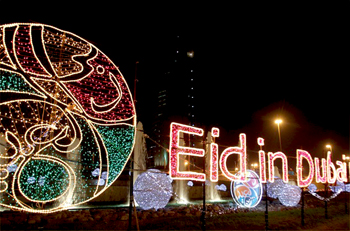 Abu Dhabi, Jul 14: The UAE government has officially announced Eid Al Fitr holidays for the public and private sectors.
Abu Dhabi, Jul 14: The UAE government has officially announced Eid Al Fitr holidays for the public and private sectors.
Public sector will enjoy holidays from Thursday, July 16 (29th Ramadan) until Shawwal 3, while the private sector will get paid holidays on the first and second day of Shawwal.
Based on these dates, if Ramadan has 29 days and Eid begins on Friday, then public sector will have four days of holidays, until Sunday, including the weekend.
If the Shawwal crescent is not sighted on Thursday, and Ramadan ends on Friday, then the public sector will have five-days of holidays, until Monday, including the weekend.
Going by the Sharjah Planetarium and the Islamic Crescent Observation Project (Icop) forecasts, Ramadan will end on Thursday and first day of Shawwal (also first day of Eid) will be Friday, hence, the public sector is looking at a four-day break.
With regard to private sector, the first two days of Shawwal will be holidays.
So if Ramadan ends on Thursday, the private sector will have Friday and Saturday, the weekend, as holidays.
If Ramadan ends on Friday, the private sector will have holidays from Friday until Sunday – including the weekend.
Eid Al Fitr announcement will be made on Thursday, July 16, by the moon sighting committees in the UAE, Saudi Arabia and other Muslim countries.
The Islamic Crescent Observation Project (Icop) and Sharjah Planetarium have announced that astronomically Eid Al Fitr of Hijri year 1436 will be on Friday, July 17, in most Muslim countries.
Among other Muslim countries, the Saudi government announced a 12-day holiday and it’s five days in Pakistan.





Comments
Add new comment